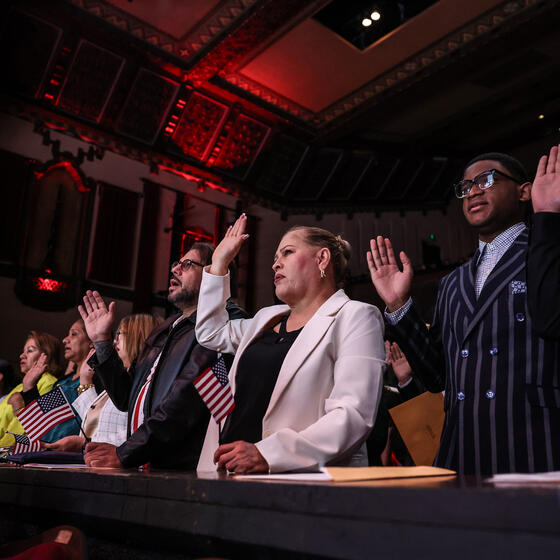Economics
When Skilled Workers Go Abroad, Their Home Countries Experience ‘Brain Gain’
When skilled workers from poorer countries migrate to wealthy ones, there are benefits for the origin countries as well as workers and the host countries, according to new research co-authored by Yale SOM’s Mushfiq Mobarak. But anti-immigrant sentiment and policy could disrupt this mutually beneficial dynamic.

What’s the Right Price?
A new study co-authored by Yale SOM’s Kevin Williams suggests that the zone pricing employed by home improvement chains benefits some consumers at the expense of others—and costs one of the two giants potential profits.

Can Antitrust Enforcement Protect Digital Consumers?
More and more of our economic and social lives are being conducted through digital channels. Economist Fiona Scott Morton talks about how effective antitrust regulation and enforcement can ensure that consumers benefit from the next killer app.

Despite Job Losses, U.S. Benefitted from Surge of Trade with China
When Chinese imports sharply rose from 2000 to 2007, American manufacturing jobs suffered, but other sectors benefitted, leading to a net increase in U.S. welfare.

Why ‘Breaking Up’ Big Tech Probably Won’t Work
Instead, argues Yale SOM’s Fiona Scott Morton, the government should exercise its regulatory powers to promote competition.

Gig Workers Value their Flexibility... a Lot
Using extensive data on Uber drivers, Yale SOM’s Judith Chevalier and her co-authors examined their driving patterns to understand the economic value of flexible scheduling. They found that rideshare drivers would have to earn as much as double to accept less-flexible arrangements.

Three Questions: Prof. Florian Ederer on ‘Killer Acquisitions’
A recent lawsuit alleged that a billionaire investor bought the rights to a new drug just to eliminate a potential competitor. We asked Yale SOM's Florian Ederer to explain why a "catch-and-kill" merger can be damaging and what to do about the phenomenon.

Prof. Fiona Scott Morton Outlines Fixes for Healthcare Markets in Congressional Testimony
Prof. Scott Morton called a private healthcare system without competitive pressure “the worst of both worlds” in terms of costs.

How Can You Make Incentives More Effective? Make Them Opaque.
A study from Yale SOM’s Florian Ederer suggests that when individuals or organizations don’t fully understand how they’re being ranked, they’re likely to work harder for higher ratings.

Janet Yellen Worries the Fed May Not Have the Tools to Fight the Next Downturn
The former Federal Reserve chair discusses what the Fed can do to help stabilize the economy and get it turned around when rate cuts aren’t enough.

Three Questions: Prof. James Baron on Amazon’s New Minimum Wage
We asked Prof. James Baron, an expert in human resources and labor markets, what Amazon’s $15 minimum wage would mean for workers there and at other companies.
